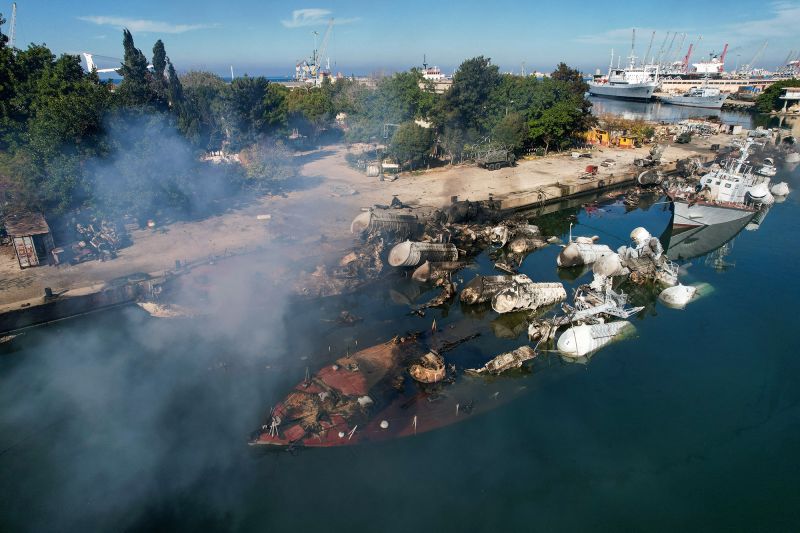Duffy confirmation hearing marked by bipartisanship, pledge to visit Helene-devastated states
Israel bombs Syria and seizes territory as Netanyahu pledges to change ‘the face’ of the Middle East


The collapse of the Assad regime has prompted a punishing military response from Israel, which has launched airstrikes at military targets across Syria and deployed ground troops both into and beyond a demilitarized buffer zone for the first time in 50 years.
Israeli Prime Minister Benjamin Netanyahu said during a rare press conference on Monday evening that the collapse of Bashar al-Assad’s regime was “a new and dramatic chapter.”
“The collapse of the Syrian regime is a direct result of the severe blows with which we have struck Hamas, Hezbollah and Iran,” he said. “The axis has not yet disappeared but as I promised – we are changing the face of the Middle East.”
Israeli officials have reveled in the downfall of Assad, a staunch ally of Iran who allowed his country to be used as a resupply route for Hezbollah in Lebanon. But they also fear what could come from radical Islamists governing Syria, which borders Israel in the occupied Golan Heights.
Foreign Minister Gideon Sa’ar told journalists on Monday that Israel was bombing Syrian military facilities housing chemical weapons stocks and long-range missiles to prevent them from falling “into the hands of extremists.”
“With regard to what will be in the future, I’m not a prophet,” he said. “It is important right now to take all necessary steps in the context of the security of Israel.”
Israeli Defense Minister Israel Katz said on Tuesday that the navy destroyed the Syrian naval fleet overnight, hailing it as “a great success.” An AFP photographer showed large scale destruction of military vessels at the Syrian naval port in Latakia.
Images taken by an AFP journalist at Mezzeh Air Base southwest of Damascus also showed destroyed Syrian military helicopters.
Meanwhile, several Arab states have accused Israel of exploiting instability in Syria to execute a land grab.
The Arab League, a grouping of Arab nations, said Israel was “taking advantage of the developments in the internal situation in Syria,” and Egypt said its moves “constitute an exploitation of the state of fluidity and vacuum… to occupy more Syrian territories.”
‘Beyond the buffer zone’
Nadav Shoshani, a spokesperson for the Israeli military, denied that forces were “advancing toward” Damascus, but acknowledged they were operating in Syria beyond the buffer zone. The Israeli military has insisted that it “is not interfering with the internal events in Syria.”
Katz said in a statement on Monday that Israel was creating a “security zone free of heavy strategic weapons and terrorist infrastructures” in southern Syria, “beyond the buffer zone.”
Israeli ground forces entered Syrian territory after Netanyahu on Sunday ordered the military to seize that demilitarized “area of separation” between the Israeli-occupied Golan Heights and the rest of Syria. That zone was established in 1974, after Israeli forces – responding to a Syrian attack – captured the Golan Heights in 1967. Israel annexed the territory in 1981, but it is still considered to be occupied Syria under international law.
Israeli officials have refused to give details on how far Israeli forces will advance, or how long they will stay there. Danny Dannon, Israel’s ambassador to the United Nations, told the Security Council in a letter on Monday that his country had “deployed temporarily in few points.” He said they were “limited and temporary measures to counter any further threat to its citizens.”
Eyad Kourdi and Dana Karni contributed to this report.











